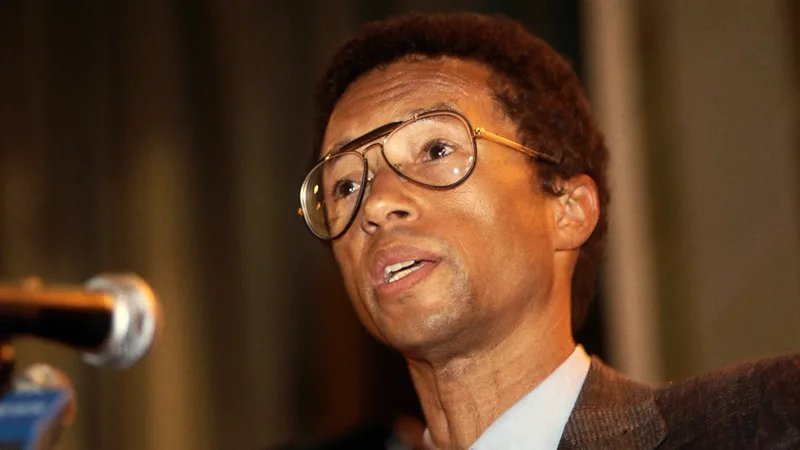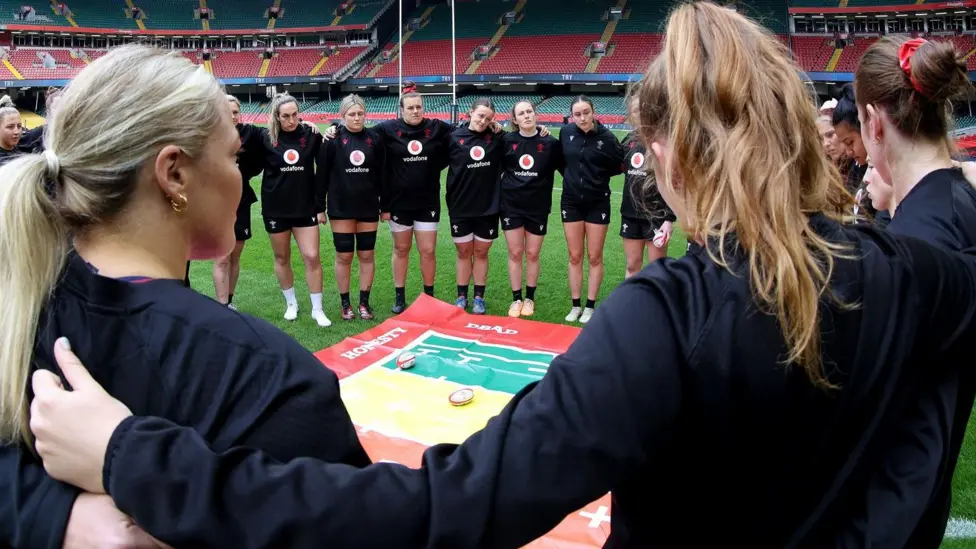Sports
World silver medallist Katir handed four-year ban

World 5,000m silver medallist Mohamed Katir has received a four-year ban for tampering after he was found to have falsified travel documents submitted during an investigation into missed doping tests.
The 26-year-old Spaniard was suspended for two years by the Athletics Integrity Unit (AIU) in February for missing three doping tests in 12 months.
But during its investigation the AIU discovered that on the date of one of those missed tests, 28 February 2023, Katir had altered his travel itinerary, boarding pass and booking confirmation in an attempt to mislead investigators who were looking into where he was that day.
The AIU requires athletes to log their ‘whereabouts’, external to assist unannounced out-of-competition tests.
The four-year ban will run concurrently with Katir’s previous sanction, extending his suspension until February 2028.
“There can be no doubt that the athlete put forward a false version of events and altered documents,” concluded the AIU’s disciplinary tribunal.
“He did so in order to persuade WA (World Athletics) that his filing failure on 28 February 2023 should not be treated as a whereabouts failure.”
Katir, who won World Championship bronze in the 1500m in 2022 and silver in the 5,000m in 2023, will miss the Worlds in Tokyo next year and Beijing in 2027.
The AIU asked for Katir’s results from 9 March 2023 onwards to be disqualified but that was rejected by the disciplinary tribunal because the timing of his whereabouts failure did not offer a “competitive advantage which affected his results”.
The head of AIU Brett Clothier said the ruling underscored the seriousness of tampering.
“Gone are the days in athletics when explanations offered in anti-doping cases are just accepted at face value,” said Clothier.
“Thanks to strong investment in investigations, since its inception in 2017, the AIU has prosecuted 25 tampering cases.
“The vast majority of our elite athletes respect the strict rules and processes of the sport and they should take heart at the action being taken to ensure a level playing field.”
International
‘I’m not afraid of dying’: The pioneering tennis champion who told the world he had Aids

In 1988, World Aids Day began with the aim of raising awareness and understanding of a disease that had struck fear in communities around the globe. That same year, US tennis legend Arthur Ashe learned of his own diagnosis. In History looks at the dilemma that faced Ashe, when, after years of secrecy, he once again became a groundbreaking campaigner.
In April 1992, Arthur Ashe made his way into a packed conference room, where the media were poised with cameras rolling. This time he wasn’t being asked about his role as the first black tennis player to be selected for the United States Davis Cup team, or about his pioneering victories at Wimbledon, the US Open or the Australian Open. He had cemented his name in history as the first black winner of a major men’s singles championship, but after a heart attack that led to multiple surgeries, he had retired from the sport 12 years earlier, at the age of 36.
His intelligence, composure and sportsmanship had made him a popular figure, on and off the court. But the press had heard rumours about his health, at a time when the world was still full of fear of an incurable epidemic. USA Today sports journalist Doug Smith, a childhood friend, confronted Ashe about a tip-off he had received. The next day, keen to control his own story and beat the press, Ashe reluctantly told the world the secret that he and his inner circle had kept since 1988: he had Aids.
2:49
WATCH: ‘Maybe there is no cure for Aids in time for me, but certainly for everybody else’.
He believed that he had contracted the illness from a contaminated blood transfusion during surgery in 1983, two years before blood donations were screened for the HIV virus in the US. The devasting news shocked the nation, but it quickly led to a debate around personal privacy and the ethics of an invasive press. At the conference, Ashe read a statement: “I am angry that I was put… in the unenviable position of having to lie if I wanted to protect my privacy.” He added that “there was certainly no compelling medical or physical necessity to go public with my medical condition”. In his memoir, Days of Grace, Ashe wrote: “More than 700 letters reached USA Today on the issue of my right to privacy, and about 95% vehemently opposed the newspaper’s position.”
Some Aids activists criticised Ashe’s desire for secrecy around his health, as they wanted public figures to broaden discussion beyond the focus of the LGBT+ community. Some felt that he would have been the perfect spokesperson to raise awareness, particularly amongst heterosexuals and minority groups: one letter went as far as to say that Magic Johnson, the NBA player who revealed his HIV diagnosis just five months earlier, could have been saved had Ashe spoken up sooner.
When asked at the news conference why he didn’t go public in 1988, Ashe said: “The answer is simple. Any admission of HIV infection at that time would have seriously, permanently, and – my wife and I believed – unnecessarily infringed upon our family’s right to privacy.” When the subject turned to telling his five-year-old daughter Camera about having the disease, emotion overcame Ashe, and his wife Jeanne read on his behalf.
Sports
Welsh Rugby Union to appoint women’s lead in 2025

The yet-to-be appointed new coach of Wales women will report into a women’s rugby lead, a role the Welsh Rugby Union (WRU) intends to establish in 2025.
That new role is being created in the wake of Nigel Walker’s departure as the governing body’s executive director of rugby. Before his exit, Ioan Cunningham left his role as Wales women head coach.
The governing body stated: “The high profile role will directly manage the Wales women head coach as well as set and implement strategy for the women’s and girls’ game across Wales and form an integral part of the WRU’s high-performance team”.
Walker stepped down following what the WRU described as a “meticulous and far-reaching review” into the high-performance element of the men’s game, with Warren Gatland continuing as head coach of the Wales men’s side despite a record 12-Test losing run.
Walker, chief executive Abi Tierney and chair Richard Collier-Keywood have overseen a turbulent period in the WRU’s history, with Welsh rugby’s governing body saying in November it would apologise for its handling of contract negotiations with the senior women’s team after admitting “serious failings”.
Collier-Keywood said that Walker, who was involved in the initial negotiations, had accepted “things should have been done better”.
The row came less than a year after a damning independent review into the WRU’s culture following a BBC Wales investigation found it was sexist, misogynistic, racist and homophobic, with those aspects not properly challenged.
The WRU has now published its full report into its governance of the women’s game.
As a result, the governing body also announced:
Changes to the way future negotiations are constructed, maximising transparency and enabling all parties to be properly represented. This includes the idea that players may need and require independent third-party involvement during negotiations and an acknowledgment that pathway players need to also be provided for in future.
A central premise is to be established where contracted players are treated as primary employees of the WRU, even where other club or employment contracts are also present.
To assess values and culture in the Women’s squad, reset professional working practices and put in place engagement work (‘Have a Voice’ sessions have already started) which helps support the mental and physical well-being of all colleagues
To continue to benchmark the WRU’s progress against other governing bodies, rugby leadership and performance management
Sports
Slam success & ranking rises – how British tennis thrived in 2024

For almost two decades, Andy Murray has been the benchmark of British tennis success.
The former world number one hanging up his racquet has allowed others to grab a greater share of the limelight.
As the nation’s leading players prepare for the new season, BBC Sport reflects on the British success stories in 2024 – and you can choose the player who has impressed you the most.
-

 Entertainment4 months ago
Entertainment4 months agoEarthquake scientists are learning warning signs of ‘The Big One.’ When should they tell the public?
-

 International4 months ago
International4 months agoTarar accuses Imran Khan of conspiring with Faiz Hameed to destabilise Pakistan
-

 International2 months ago
International2 months agoPTI Announces Not to Boycott New Committees
-

 Business3 months ago
Business3 months agoMajor Corruption Scandal Uncovered at WASA Multan: Rs1.5 Billion Embezzlement Exposed
-

 Business4 months ago
Business4 months agoThe Impact of QR Codes on Traditional Advertising
-

 Business4 months ago
Business4 months agoThe Benefits and Problems of International Trade in the Context of Global Crisis
-

 Business4 months ago
Business4 months agoFraud by Pakistani Firm Sparks Outrage in Business Community; Concerns Rise Over International Investment
-

 Business2 months ago
Business2 months agoHigh Court Blocks MDCAT Merit List Amid Controversy Over Exam Error






